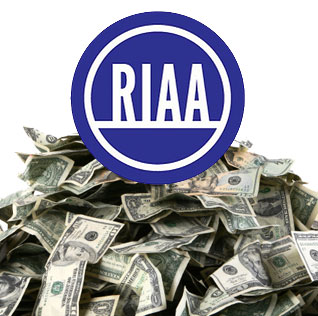RIAA is trying to involve Google and Verizon in the fight against Internet pirates

The “Network Neutrality Principles” proposed by the joint Google / Verizon team were welcomed not only by ordinary web users. The Principles were also joyfully welcomed by the RIAA (Recording Industry Association of America). We remember this association in crazy lawsuits against The Pirate Bay, pregnant women who downloaded a couple of songs from torrent trackers and LimeWire service (yeah, that one and a half trillion dollars suit). The guys from the RIAA decided to
“The current legislation does not work for creative people in America,” the letter says. "The foundations of our business are being destroyed, as well as the dreams and careers of many composers, songwriters, musicians, studio workers and other professionals."
')
This message, as mentioned above, was sent by the RIAA in response to the publication of the principles of network neutrality, developed by Google and Verizon (which, as I personally think, still didn’t do it for nothing, but decided to ward off suspicion of questionable agreements about priority different types of traffic). In general, the RIAA is trying to turn everything in its favor, making it so that those very principles turn from a simple collection of ideas into a legislative base. In particular, the RIAA proposes to implement the Principles in such a way that all Americans (well, probably not only them) “get access to all legal content on the Web” (a strange statement in general — nobody seems to be keeping this content locked up) .
In general, as always, the main question is raised
Interestingly, the RIAA is not satisfied with the text of the Principles, and wants to add a few of its own lines to ensure the protection of the copyright itself. This is not the first time worth noting.
For example, back in January, the RIAA asked the US Federal Communications Commission to adopt several “flexible rules” that would effectively oblige Internet service providers to search for those copyright infringers day and night. Currently, copyright on the Web, or rather, copyright protection, is determined by the 1998 Millennium Copyright Act, according to which Internet service providers should not be loyal to copyright infringers.
But now, if lawmakers do listen to the RIAA, everything can turn into new billion-dollar lawsuits against housewives and various services.
In general, let's hope that Google and Verizon will not stand shoulder to shoulder with the RIAA.
Source: https://habr.com/ru/post/102379/
All Articles